#celtic scotland
Text
Today's Hidden Gem
Taking a wander through the National Museum today, I nearly walked past this cute lil' carving of an Ox!
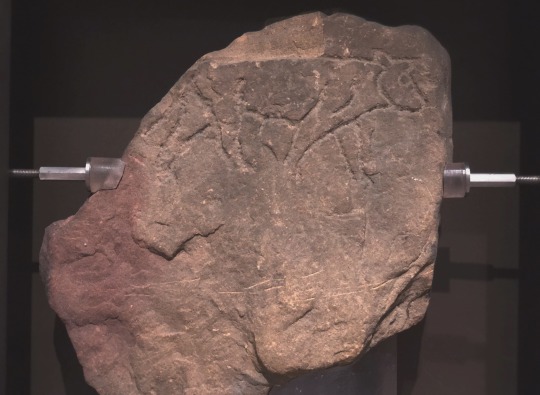
This wee beauty hails from East Lomond Hill, and dates to c.AD 500-800. Carved into (I believe) a rough block of sandstone is the ox, with clearly defined leg muscles, ears and tail!
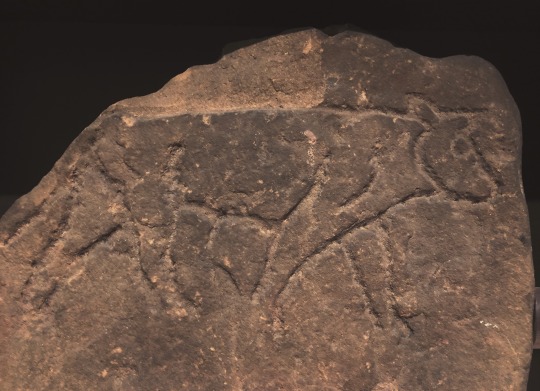

Oxen were domesticated and utilised by farmers to move heavy loads and plough fields.
#national museum of scotland#national museums scotland#scottish youtuber#ancient history#archaeology#archaeogaming#youtube#chaotic academia#scottish archaeology#scottish history#archaeolorhi#ancient farming#oxen#animal carving#celtic art#roman art#roman britain#roman scotland#celtic britain#celtic scotland#celts#celtic#dark academia#celtic carving#scottish prehistory#scottish art#ox carving#ox painting
94 notes
·
View notes
Text
'Wool waulking is a traditional Scottish process of finishing and strengthening newly woven woolen fabrics. It is a significant social and cultural activity, often carried out by women in the Highlands of Scotland. The Gaelic songs that are sung during waulking have a distinctive rhythmic pattern that aids in synchronising the work.'
(Video and text via Inverness Outlanders)
#so obsessed with waulking songs so i had to share this#folk#folk culture#scotland#scottish folklore#celtic folk#scottish gaelic
13K notes
·
View notes
Text

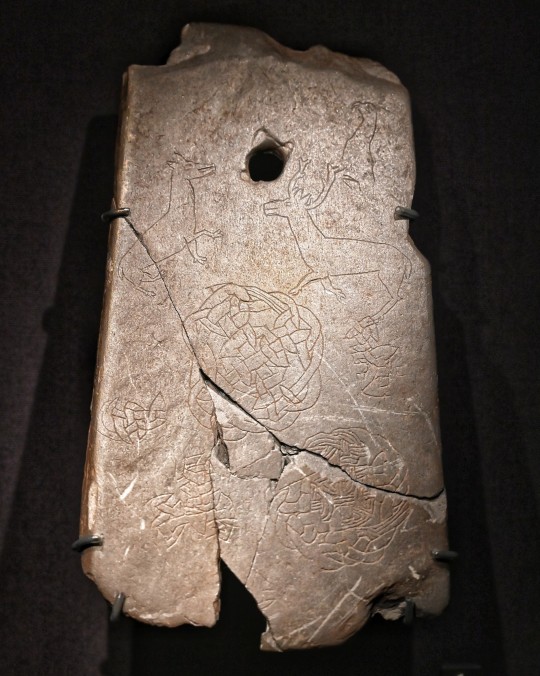

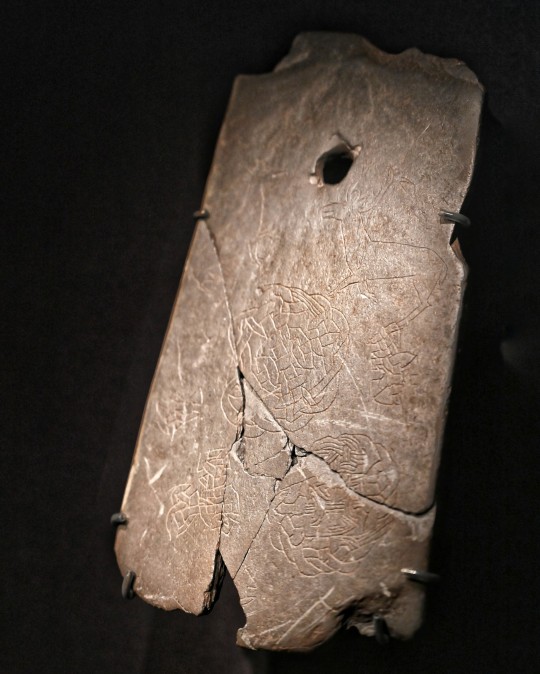
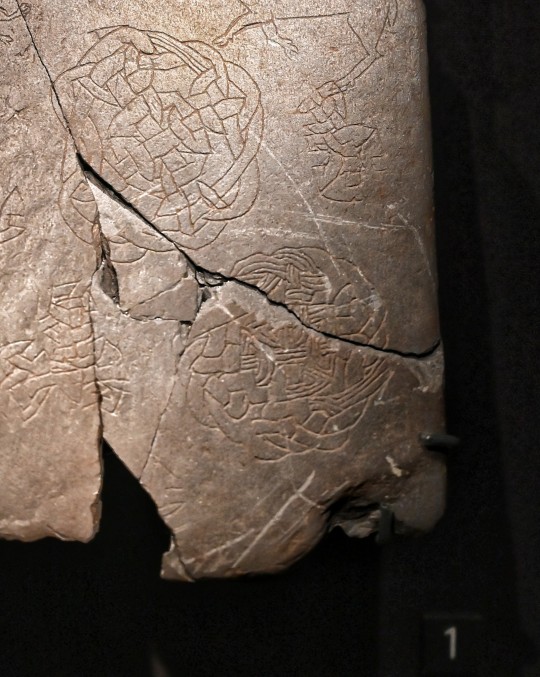
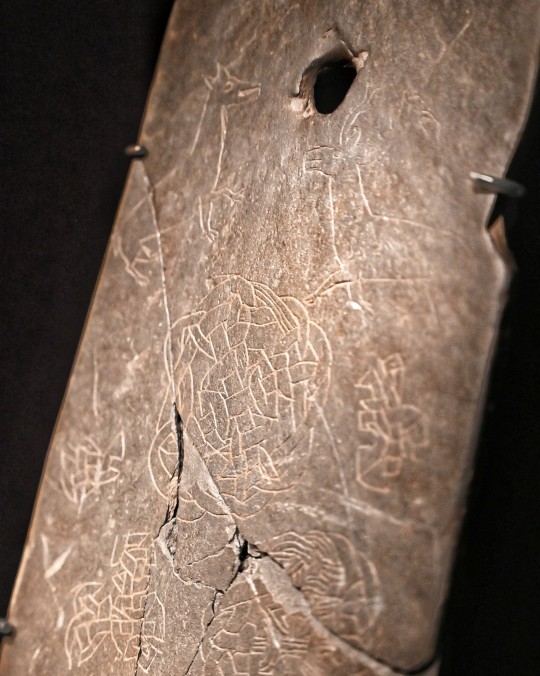
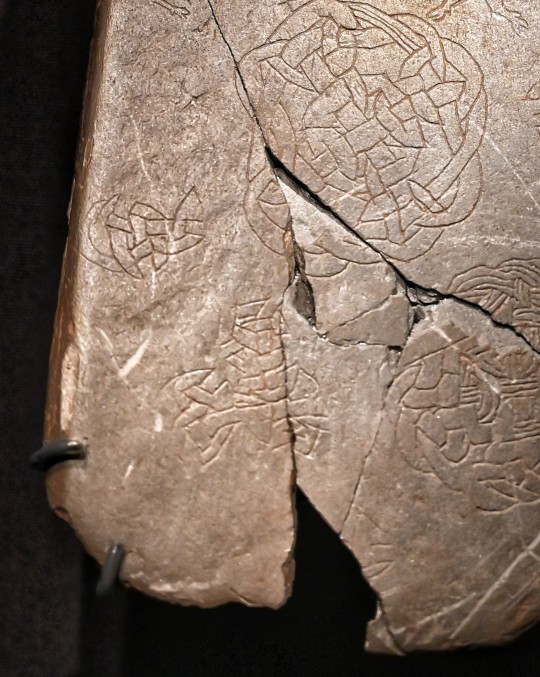
Ancient Inscribed Stone (Beasts and Knotwork), Kilmartin Museum, Kilmartin Glen, Argyll, Scotland
#ancient stones#knotwork#Celtic#celtic knot#archaeology#relic#ancient craft#ancient living#ancient cultures#ritual#early religion#beast#stag#symbols#argyll#Scotland
676 notes
·
View notes
Text
Quick un-unite that fucking kingdom while they're not looking
🇮🇪🏴🏴
7K notes
·
View notes
Text
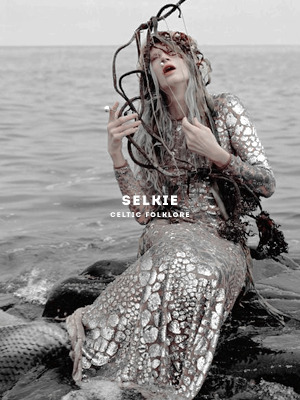
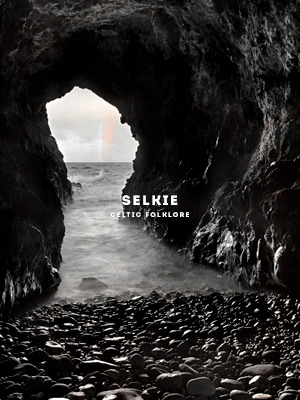
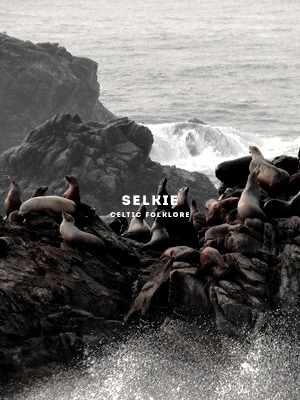
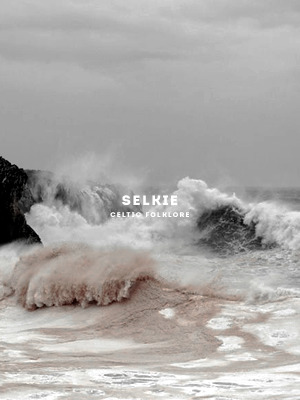
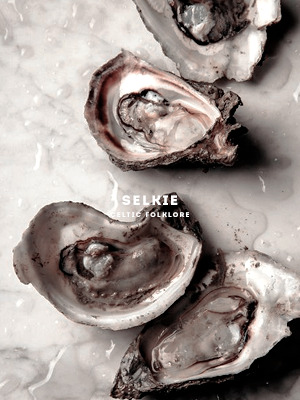
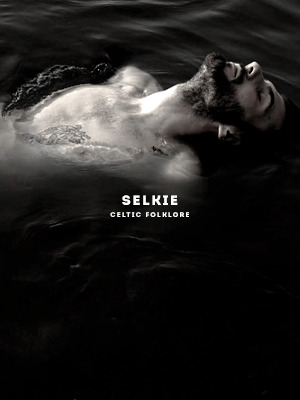
celtic mythology: selkie
"Peppered throughout Celtic folklore are stories about seal people, also called selkies who are said to be cursed with a constant longing for what they do not have: when they are swimming in the water as seals, they yearn to be on land, and when they walk on two legs as a human, they long to be in the sea. They can transform from one creature to another by shedding their sealskin, and alternatively, putting it on again."
#mythedit#mythologyedit#celticedit#folkloreedit#mythology#celtic mythology#celtic folklore#scotland#ireland#selkie#mine
343 notes
·
View notes
Text
See, I personally find this quest to find pagan/pre-Christian elements in Welsh/Irish literature quite unnerving - I don't know about anyone else.
There's something to be said about genuinely discovering pre-Christian elements in a narrative or story and that being where evidence and study has led you. But I see some people on this fruitless quest to find pagan elements in very Christian texts and sometimes it feels like if no pagan elements can be found, people start making stuff up out of whole cloth - and that can be very dangerous for already not-well known texts in minoritised languages!
There's already so much misinformation out there about Irish/Welsh texts and literature in general - so it hurts to see people carelessly adding to the misinformation either out of ignorance or lack of respect for the source material.
I promise you the source material being Christian doesn't ruin it - you can in fact, enjoy these myths without making them into something they're not!
#I feel like general ire towards (particularly) colonial Christianity has informed how people think of and view anything that is associated#with Christianity - and ire towards some of the ills committed in the name of Christianity is very valid actually#but what it isn't is approaching any text written in a Christian context and immediately disregarding it for having anything unique or#insightful to say. And in a Celtic languages context#this can be especially othering and almost fetishistic of an imagined pagan Ireland and Wales which was 'covered up' by Christianity#and that desire for people outside of Ireland and Wales to impose a kind of 'pagan faerie culture' onto the modern countries directly feeds#into false depictions of Ireland and Wales as 'lost in time' or as magical places full of latent pagan culture &c. which can be really#damaging in its own way against people who live in Wales or Ireland or who speak Welsh or Irish#this goes for other Celtic speaking nations too like Scotland Brittany Isle of Man and Cornwall#But Wales and Ireland tend to be the most focused on for this kind of treatment#luke's originals#Welsh#Wales#Cymblr#Irish#Ireland#welsh mythology#irish mythology#irish literature#welsh literature#Arthurian legends#arthurian literature
329 notes
·
View notes
Text
Jewish-Celtic Similarities
So I know I'm late to this, but a while back @nattitavi asked me to please tell more about Jewish-Celtic similarities. This is something that I, too, have some interest in. For context, I'm an American Jew with some Celtic ancestry (my dad's family is """Irish""") and am now living in a Celtic country (not Ireland-don't want to say where exactly I live on the internet). Unfortunately, I don't know of any "scholarly" resources on this topic, but there are some similarities I can think of off the top of my head and have heard brought up in discussions:
Both are communal cultures in which the people help each other out.
Historical dependence on sheep
Indigenous peoples who take responsibility for nature
Long history of persecution and being colonized
Many Celtic rock groups have a lot of Jewish fans and sometimes Celtic rock songs happen to have Jewish themes. For example, to me at least, the song "In a Big Country" by Big Country is clearly about Shoah survivors making new lives for themselves in Israel (but then shouldn't it be called in a small country?), "The Storm", also by Big Country, despite explicitly being about the battle of Culloden just makes me think of 7/10 whenever I listen to it since then, and "Blood" by Dropkick Murphys seems like a good song for Purim (or really any holiday that's "they tried to kill us, we survived").
Using the tree of life as a symbol (although that exists in other cultures, too).
There are some linguistic similarities between Celtic and Semitic languages! I actually do have a source for this: https://www.youtube.com/watch?v=OAAmwtdP1bE
Could the Celts be one or more of the lost tribes? There's some speculation about this that's in the realm of conspiracy theories, but I think it's possible.
172 notes
·
View notes
Text
oh, but love grows
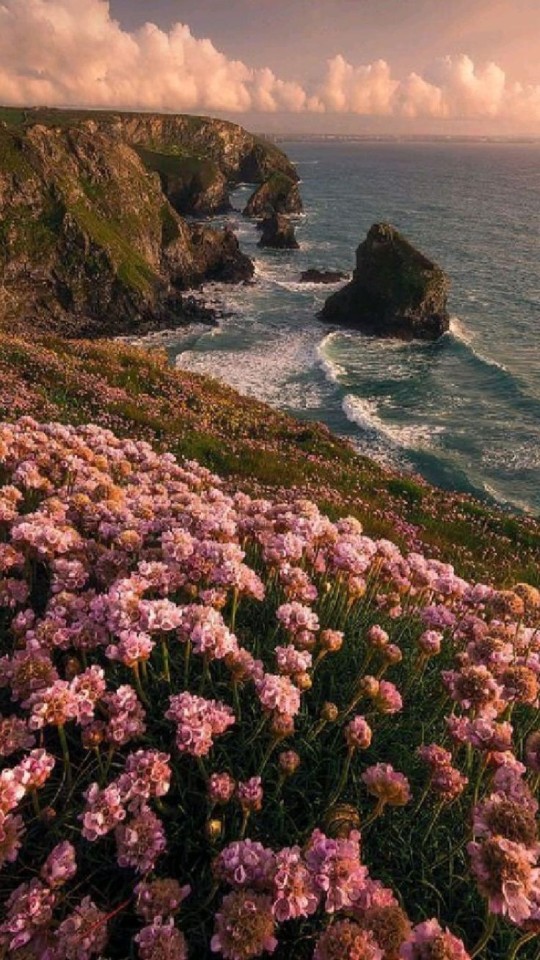



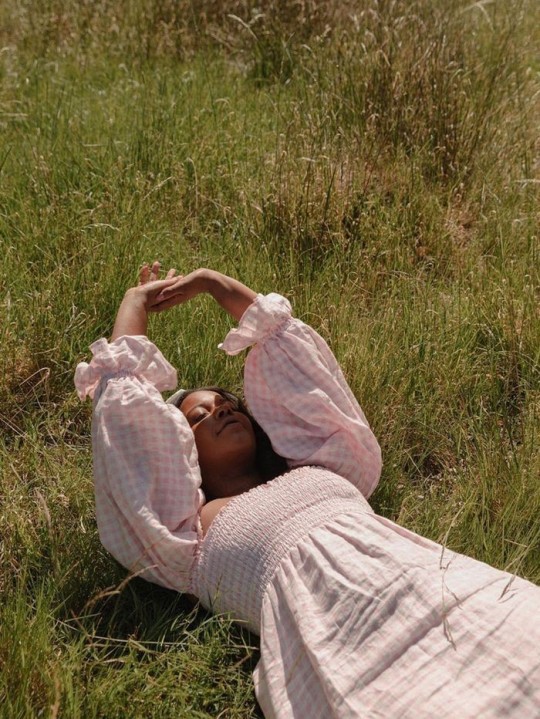
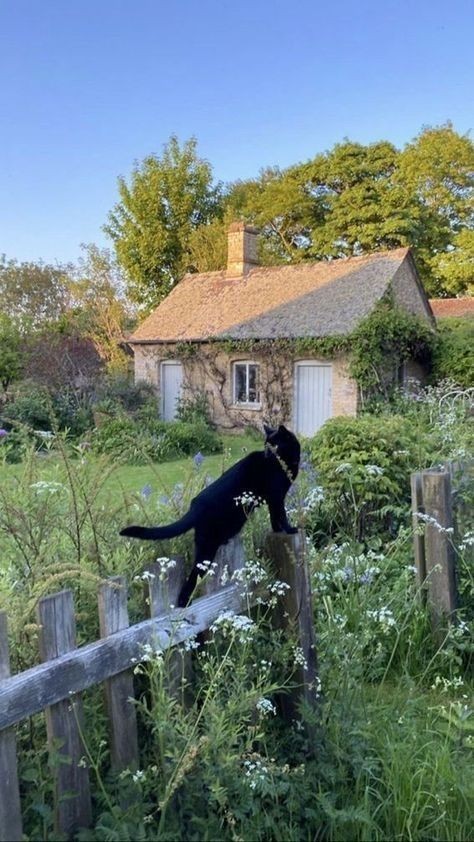


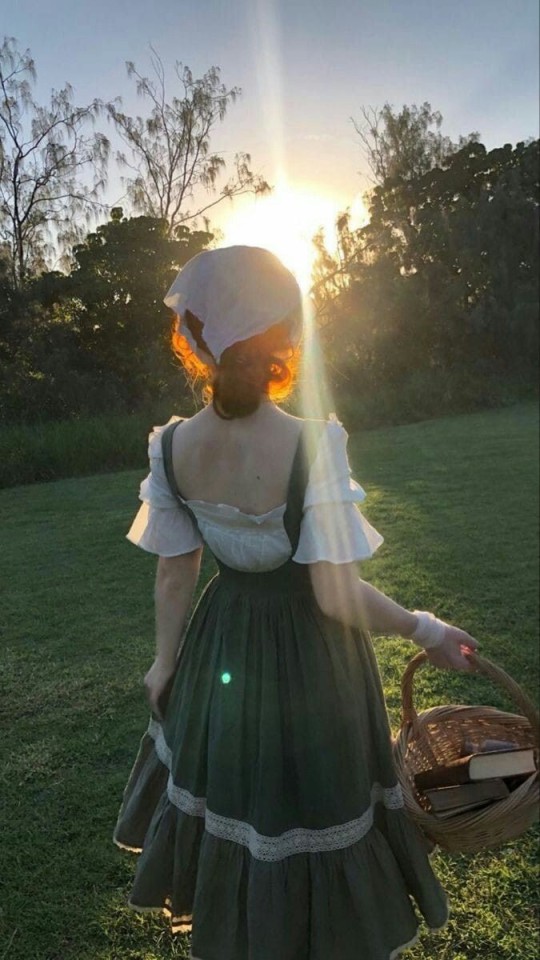
Where my rosemary goes
#cottagecore#cottage aesthetic#cottagecore moodboard#moodboard#aesthetic#lifestyle#celtic#ireland#scotland#fashion#flowers#country#naturecore#flowercore#forestcore#nature aesthetic
73 notes
·
View notes
Text
Irish, Welsh and Scottish Gaelic speakers, I need your help! 🇮🇪🏴🏴
For a piece of academic writing I am working on right now, I was wondering if in the context of those three languages, you have positive or negative examples of:
1) The presence of non-standard dialects digitally or in the media (any content creator you know, any regular speakers on the radio that actively uses a non-standard dialect, or on the contrary, you only encounter standard Irish/Welsh/Gaelic. If you have any example of non-standard writing too, for example in the printed press, I am all ears)
2) Do you speak and/or write a non-standard dialect and have been looked down upon for it by other speakers? If yes what dialect and in what context
3) What do you think about purification practices in which loan-words from English are replaced by new words? Which words do you use? If you study the language formally, which are taught to you?
Thank you, and please reblog!
- A grateful Celtic student
#Irish#Gaelic#Scottish Gaelic#Welsh#gaeilge#cymraeg#Gàidhlig#Ireland#Scotland#Wales#Celtic languages#Minroty languages#Linguistics#Standardisation#Celtic#Celtic studies#Languages#Alba#Mostly for native speakers but also non-native fluent speakers that regularly interact with the language
61 notes
·
View notes
Text
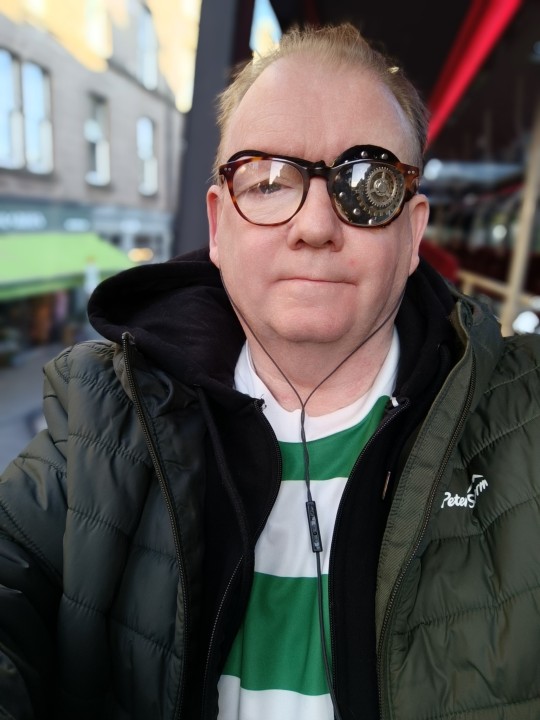
Off to my hometown, Loanhead where a kind friend is picking me up and treating me to a visit to Paradise to watch Celtic v Ross County, my first match in over a decade. 🍀🙂
68 notes
·
View notes
Text
The Deskford Carnyx
NEW VIDEO ALERT!

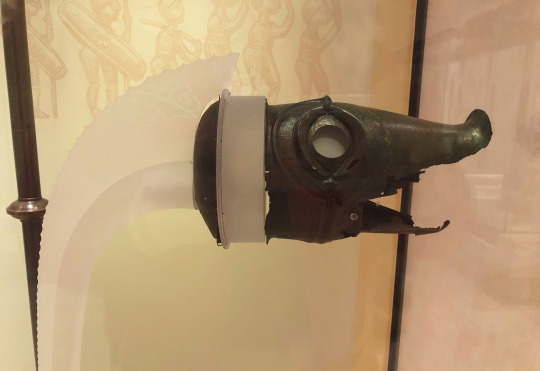
Tumblr let me introduce to you, the Deskford Carnyx! A celtic war trumpet from Scotland!
This has been one of my favourite artefacts in the National Museum of Scotland for years now (I wrote a CRINGE report on it in 2nd year) so I'd love to share it with you all!
Click the link below to see the full video, out now!!
youtube
Tumblr will probs bury this due to the YouTube link but here have some extra pics of mine, of the carnyx and its reconstruction in their wee home x

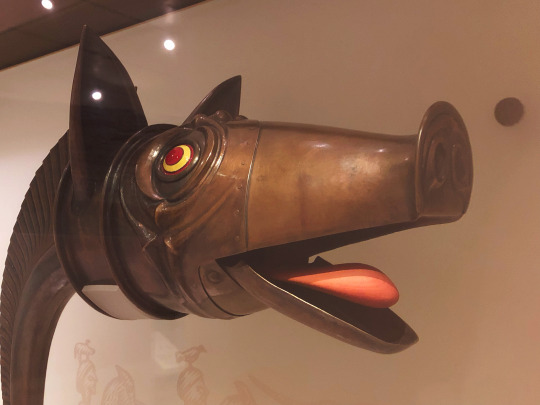
Don't forget to follow, like and subscribe for more Archaeolorhi!!! x
#scottish youtuber#scottish streamer#scottish history#scottish archaeology#iron age scotland#roman scotland#roman iron age scotland#celtic scotland#chaotic academia#archaeology#ancient history#archaeogaming#youtube#archaeolorhi#celtic britain#celtic europe#celtic art#celtic music#celtic instrument#dark academia#scotland#national musuem of scotland#roman britain#iron age europe#deskford carnyx#carnyx#war trumpet#Youtube
8 notes
·
View notes
Text

Historical - for the fifth day of @hetalia-rarepairweek ✨
It's been a while since I've done any viking/celtic ScotNor 🥰
#hetalia rarepairweek#rarepairweek 2023#hetalia#scotnor#aph norway#aph scotland#hws norway#hws scotland#ik it's a day late but I've been a bit busy lately#I have a lot I want to draw but little time and scarce motivation atm 😔#I'll do some more scotnor for the last day of this week and after that I'll do some more requests and some Kaptein///Sabeltann#was on a road trip all day yesterday and I'm still tired 😔 I might be getting old - also maybe caught a cold?? 😭#hoping I'm better tomorrow but I'm seeing a friend then - so less time to draw 🤔....and study#I would like to expand more on early times (viking/celtic) scotnor but idek where to start 🤔🤔🤔
124 notes
·
View notes
Text

Three stages boss sketches inspired by the Scottish fairytale Tam Lin 🧡🩵
#art#my art#sketch#drawing#illustration#digital art#digital painting#anime#celtic#scottish#scotland#fox#medieval#tamlin#tam lin#video games#video game#concept art
35 notes
·
View notes
Text
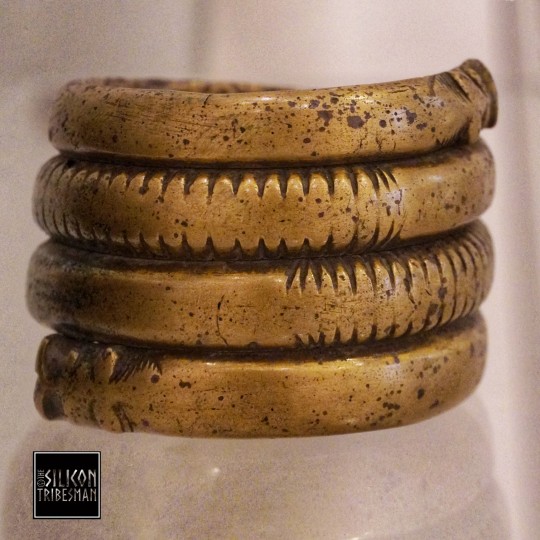

Iron Age Snake Bracelets, The National Museum of Scotland, Edinburgh
#ice age#stone age#bronze age#copper age#iron age#neolithic#mesolithic#calcholithic#paleolithic#prehistory#prehistoric#metalworking#metalwork#snake bracelet#bracelet#snake#symbols#archaeology#Romano-Celtic#Scotland#Edinburgh#jewellery
131 notes
·
View notes
Text

If November were a city, it would be Edinburgh.
Photo: Edinburgh, Scotland
#edinburgh#scotland#dunedin#uk#great britain#british isles#britain#caledonia#celtic#celtic europe#northern europe#gaelic#travel#tourism#cool weather#adventure#explore#calton hill#gothic architecture#historic cities#european cities#history#europe#european vacation#scotland the brave
66 notes
·
View notes
Text
Irish people in the UK, can any of us speak irish…
So many people in my school and my area are irish or half irish and so few of us even have one word of irish. My friend, A, is half irish half jewish and although her mum is nearly fluent she only has some duolingo irish. N, fully irish and not a word of it. E, half irish half chinese is fluent in chinese but only knows one word of irish. M, half ghanain half irish and again- no irish. Even myself, half irish half romani i only have duolingo knowledge and it upsets me that i cant find anyone who speaks it and i have no native speaker influence due to me not seeing my irish family anymore.
I implore anyone- connection or no connection to the language- to give gaeilge or any celtic/dying language a go.
#gaeilge#irish#languages#celtic#gaelic#scottish#ireland#scotland#welsh#wales#cornwall#cornish#celtic solidarity#celtic languages
57 notes
·
View notes